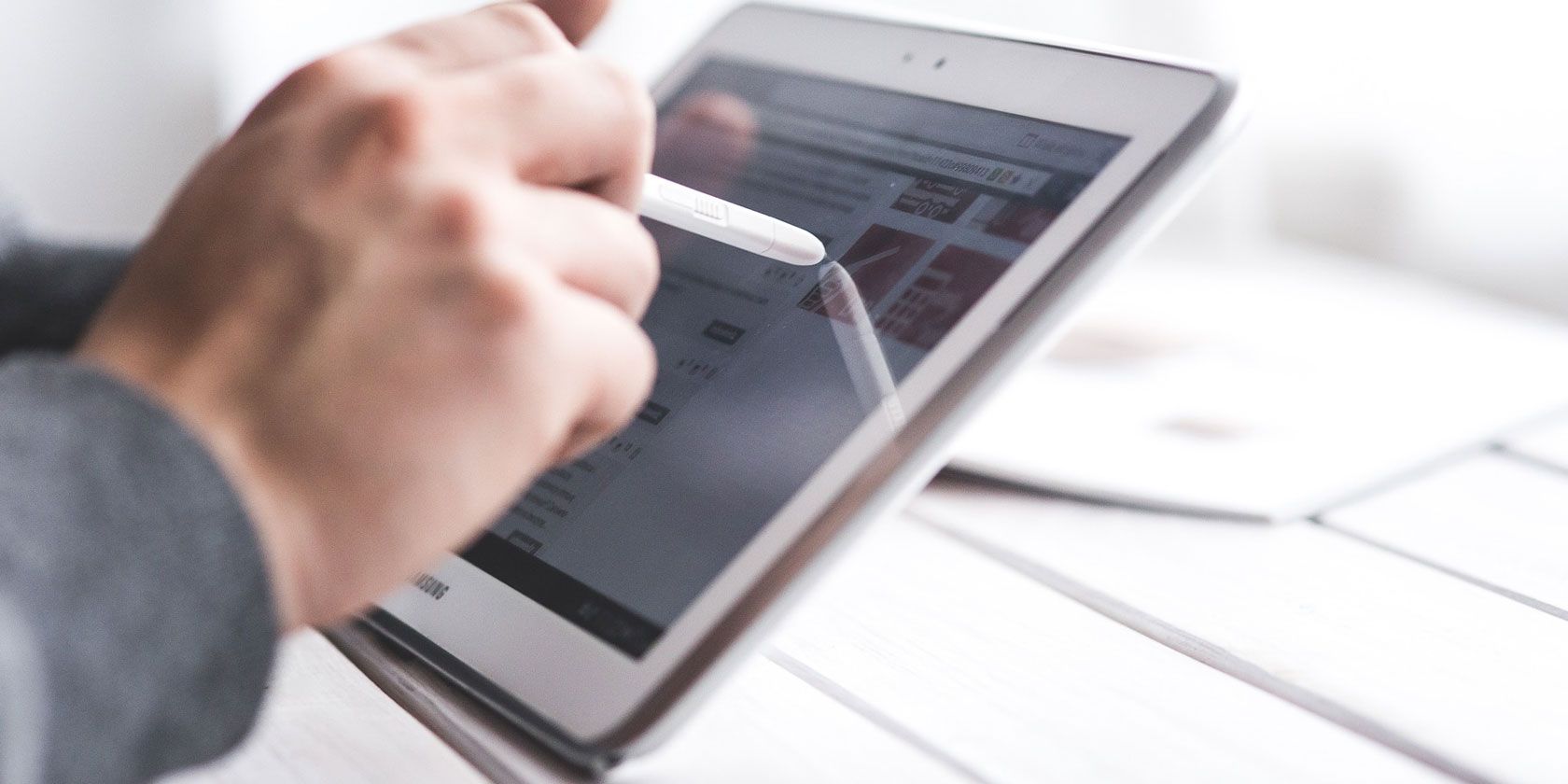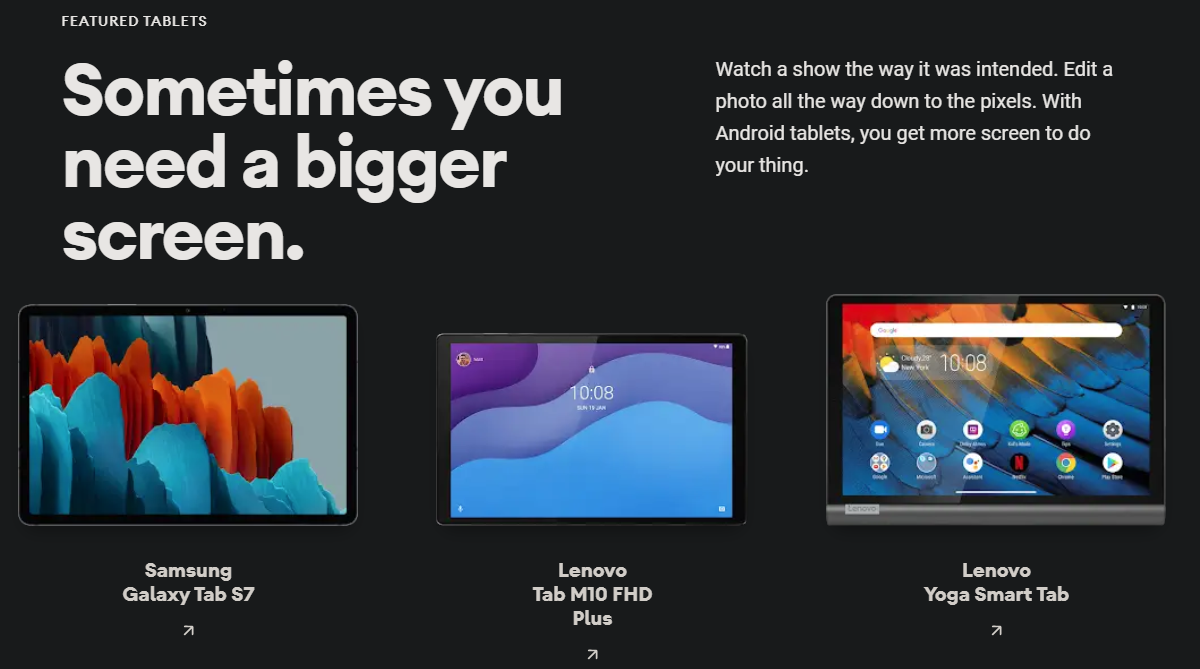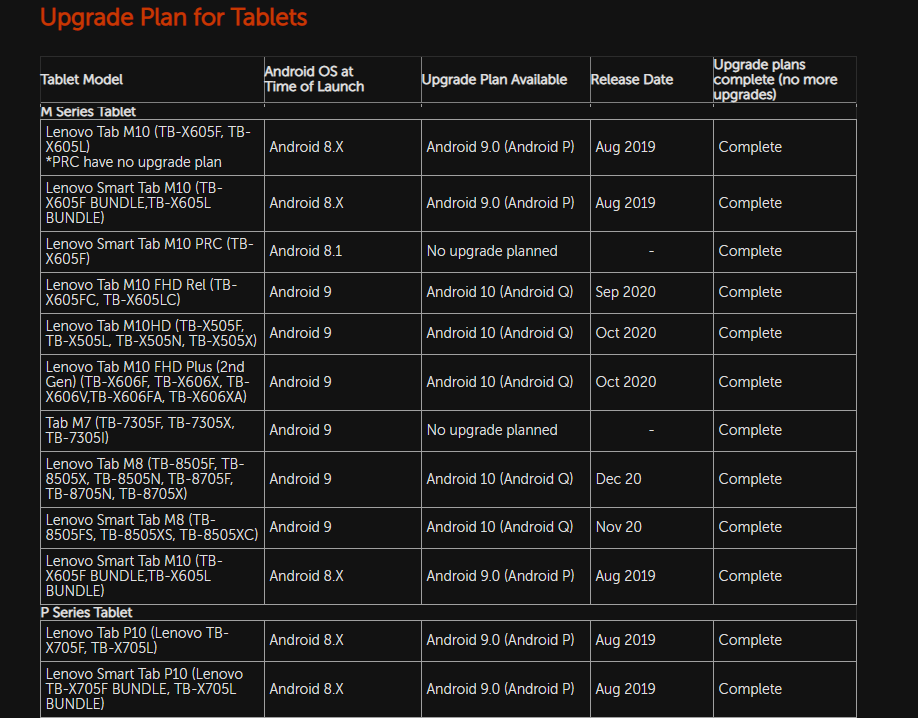While tablets have generally fallen out of favor since their initial popularity spike, they're still around today. The iPad dominates the market, but if you're an Android fan, you probably won't spring for one of those.
This will naturally lead you to gravitate towards a tablet that runs Android. But we recommend against buying Android tablets. Here's why.
1. Poor Selection of Tablets
One of the great strengths of Android phones is that it's easy to find a device that matches your needs. Whether you like a small or large screen, prefer stock Android or tons of extra features, or want a headphone jack, you can find a phone for you.
The Android tablet market isn't like that, though. Google's official Android phones and tablets page lists a whopping three tablets:
- Samsung Galaxy Tab S7, which is the newest offering. It released in August 2020.
- Lenovo Tab M10 FHD Plus, which arrived in March 2020.
- Lenovo Yoga Smart Tab, which came out in October 2019.
Of course, these aren't the only Android tablets available. But it's pretty pathetic that this is Google's best showing—most of the other Android tablets you'll find on Amazon are cheap, no-name devices.
Even Google itself has dropped out of the tablet market. The company killed off the higher-end Pixel Slate in 2019, and announced that it has no plans to continue the tablet line going forward. That doesn't bode well for the Android tablet market as a whole, since Google publishes Android.
2. Terrible Android Update Support
Android's fragmentation problem is one of its biggest drawbacks. Unless you buy a Pixel device, you likely won't get the newest Android update until months after it releases. And in some cases, you'll only get one major update—or even none at all. This issue also affects Android tablets.
Of the devices mentioned earlier, the Lenovo Tab M10 and Yoga Tab both shipped with Android 9, which released in August 2018. Checking the Lenovo Android Update page, we can see that both devices later got an update to Android 10 (the M10 in October 2020 and the Yoga in January 2021). On that page, both devices are marked as Complete, meaning that there are no more upgrades planned.
So if you bought a Yoga Smart Tab in October 2019 when it came out, it was already running a year-old OS. You then had to wait a year and three months for an Android update, and when you did get Android 10, it had already been out for over a year. And the device won't get any more updates afterward.
The Galaxy Tab S7 came with Android 10. Samsung released the tablet a few weeks before Android 11 launched, but Android 11 didn't make it to the Tab until January 2021. That's not awful, but it's still a while to wait for an update to a premium device.
Meanwhile, you can forget about Android updates altogether if you buy a cheap device. Those will likely come with an old version of Android, and rarely, if ever, see any upgrades past what ships on it.
3. The iPad Is Better for Gaming
Assuming you already have an Android phone, you're probably looking to get a tablet for secondary use. A common purpose for a tablet is playing mobile games. But if this is why you want a tablet, you're much better off getting an iPad.
We've looked at why iPhone and iPad are better for mobile games before. Games often launch first (or exclusively) on iOS, sometimes months before they see an Android release. Because Apple only makes a few phones and tablets, compared to the thousands of Android devices available, game developers tend to focus on iOS due to easier development.
Often, game performance is better on iPad as well. This is especially true when you compare a modern iPad to most of the cheap or outdated Android tablets available now. The Play Store is also home to some fake/junk games, making it slightly more dangerous for children.
Another big benefit of an iPad is that you can take advantage of Apple Arcade. For $5/month, the service grants you access to over 100 games that have no ads or in-app purchases. You can download these for offline play and even share your subscription with your family.
Google Play Pass is a similar service on Android, if you do end up going with an Android tablet. Which service is better for you depends on the games you want to play.
The Cost Isn't Worth It: Android Tablet Alternatives
Now that we've seen why Android tablets really aren't worth the cost, what should you get instead? Think about what you want to buy a tablet for, and you'll likely find a device that does it better for the same (or a lower) cost.
Let's take a look at some common categories.
Cheap Tablet: Amazon Fire 7 Tablet
If you want to get the cheapest tablet possible for your kids or as a throwaway device, the Fire 7 Tablet is a great choice. It integrates with your Amazon Prime account for all kinds of goodies, offers expandable storage, and often goes on sale for a steep discount.
The Fire Tablet runs Amazon's Fire OS, which means it's technically still an Android tablet. But for the price, you won't find a better value.
Premium Tablet: 2020 iPad or 2020 iPad Pro
Let's say you decide to get an Android tablet. You want to get the newest one available to enjoy the best features and latest OS, so you opt for the Samsung Galaxy Tab S7 mentioned earlier.
At the time of writing, the sticker price of the device is $650 for a 128GB model, or $730 for 256GB of storage. In comparison, the 2020 iPad is $329 for 32GB, or $429 for the 128GB model.
While you do get less storage with the iPad, this is still a significant price difference for a casual tablet user. And given the points discussed above, it doesn't make much sense to pay more for the Android device. If you only want a tablet for casual browsing, playing some games, and watching videos, the basic iPad does it all for less.
What if you're interested in a tablet for professional use? For a bit more money, you could upgrade to the 11-inch iPad Pro. This starts at $799 for 128GB of storage. Of course, this isn't cheap, but if you want the best tablet experience, it's probably worth the extra cost.
With an iPad, you know you'll receive OS updates for years to come, and get them as soon as they release. Plus, Apple has split iPadOS into its own operating system with iPad-specific features. Android hasn't gotten any tablet-specific upgrades in many years.
For Playing Games: Nintendo Switch
It doesn't make much sense to spend hundreds of dollars on any tablet if you're only looking to play games on it. The majority of mobile games are nothing special, and are filled with in-app purchases that grind gameplay to a halt. You can play most of them on your phone anyway.
If you're interested in playing better games, why not pick up a Nintendo Switch? For the cost of a tablet (or less), you get access to the vast Switch library of excellent first-party Nintendo games and indie titles alike. The system is both portable and a home console, so you can take it on the go just like a tablet.
For General Productivity: Chromebook
It's tough to get real work done on a tablet, especially if you don't buy a keyboard and other extra attachments for it. If you want a secondary device you can take with you on trips or use on the couch, consider a Chromebook. These have a physical keyboard compared to the virtual one on a tablet, and they come in a variety of sizes and forms.
Some Chromebooks even offer 2-in-1 functionality, so you can fold them down like a tablet. Getting two devices for the price of one is a better value than an Android tablet. And modern Chromebooks can run Android apps too, thanks to Google Play Store support.
Tablets Aren't That Great Anyway
We've looked at the reasons that Android tablets really aren't worth buying. The market is mostly stagnant, with old devices and outdated versions of Android dominating it. The best modern Android tablet is way more expensive than an iPad, which makes it a waste for casual users. In every case, another device beats the Android tablet offering.
But in general, tablets are pretty niche these days anyway. Bigger phone screens mean small tablets are pointless, and e-readers like the Kindle are far better for reading books. Unless you have a specific reason for getting a tablet, don't bother.



